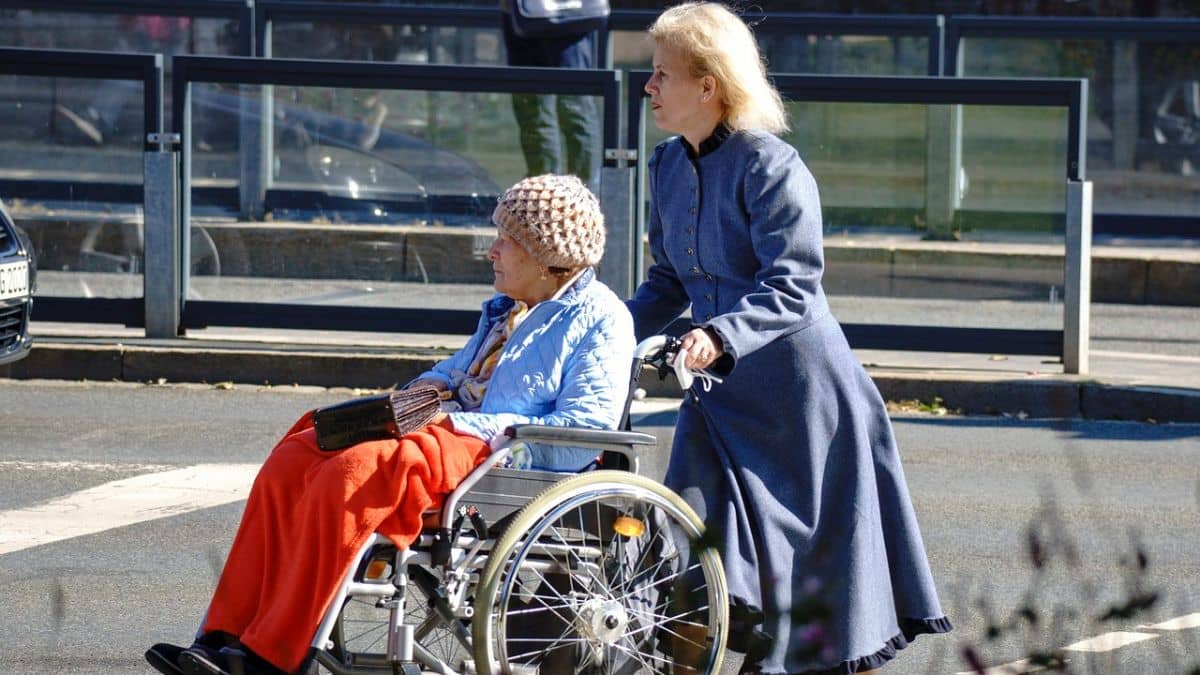Taking care of a family member who needs help can be both rewarding and challenging. Many people find themselves in a position where they need to provide care for a loved one, whether due to aging, illness, or disability. In Florida, it is possible to become a paid caregiver for a family member, which can help ease financial burdens while allowing you to provide the care they need. In this article, we’ll explore how to become a paid caregiver for a family member in Florida, step by step.
Understanding the Role of a Caregiver
Before diving into the specifics of becoming a paid caregiver, it’s important to understand what the role involves. Caregivers assist individuals with daily activities that they may struggle with due to health issues. This can include help with bathing, dressing, cooking, cleaning, and even managing medications. Caregiving is not just about physical tasks; it also requires emotional support and companionship.
Caregivers often become a vital part of their loved one’s life. They provide comfort and familiarity, which can be incredibly beneficial for someone dealing with health challenges. The relationship between a caregiver and their family member can be built on love, trust, and understanding. Also read How to Become a Paid Caregiver for a Family Member in Florida
Legal Considerations
Before you can become a paid caregiver for a family member in Florida, you need to understand some legal aspects. First, it’s essential to ensure that your loved one is eligible for receiving care and that you meet the requirements to be their caregiver.
In Florida, family members can get paid for caregiving through various programs. One common program is Medicaid. Medicaid offers various services that may cover caregiver costs, especially if the individual qualifies for long-term care assistance. It’s vital to familiarize yourself with your loved one’s Medicaid plan and what it covers.
Additionally, some individuals may need to apply for financial assistance or home and community-based services (HCBS) programs, which allow family caregivers to be compensated for their services. Understanding these programs will help you navigate the process smoothly.
Assessing Your Family Member’s Needs
Before you jump into becoming a paid caregiver, take some time to assess your family member’s needs. This involves understanding what kind of assistance they require. Each person has unique needs depending on their health status, age, and living situation.
Start by having an open conversation with your family member. Discuss their daily activities and where they feel they need help. Some might need assistance with mobility, while others may require support with household chores. It’s also important to consider their emotional and social needs. Caregiving is not just about physical help; it’s also about companionship and ensuring they feel supported and loved.
You may want to create a list of tasks that will be part of your caregiving responsibilities. This will give you a clearer picture of what you will be doing and can help in discussions with agencies if needed.
Getting Trained and Certified
While you may already have a deep understanding of your family member’s needs, getting some formal training can be beneficial. Florida does not require caregivers to have specific certifications for family caregiving; however, training can equip you with valuable skills.
Consider looking into local community colleges or organizations that offer caregiving classes. These classes often cover essential skills like first aid, CPR, and how to handle specific medical conditions. Having this training not only helps you provide better care but can also make your family member feel more secure knowing that you are prepared.
Additionally, being trained can make you more appealing to programs that pay caregivers, as they may prefer individuals who have demonstrated skills and knowledge in caregiving.
Applying for Payment Programs
Once you feel ready and understand the needs of your family member, the next step is to apply for payment programs. In Florida, there are several options available:
1. Medicaid Waivers
Florida has several Medicaid waivers that can help cover the cost of caregiving services. The most common ones include the Home and Community-Based Services (HCBS) Waiver and the Aged and Disabled Adult Waiver. To apply, you’ll need to go through the Medicaid application process, which typically involves a financial assessment of your family member and an evaluation of their needs.
2. Cash and Counseling Program
This program allows eligible individuals to receive a monthly allowance to hire caregivers, including family members. To qualify, your family member must meet specific income and health criteria. They will also need to go through an assessment to determine their needs. Once approved, they can use the funds to pay you for your caregiving services.
3. Veterans Benefits
If your family member is a veteran, they may qualify for benefits that can help pay for caregiving services. The Department of Veterans Affairs offers programs specifically designed to assist veterans and their families. Check with the VA for specific eligibility requirements and application procedures.
4. Private Insurance
Some private insurance policies may cover caregiving services. Review your family member’s insurance policy to see if this is an option. If it is, you’ll need to follow the insurer’s guidelines for hiring a caregiver.
Setting Up a Payment Agreement
After determining how your family member can pay you, it’s essential to set up a formal payment agreement. This agreement should outline the services you will provide, how much you will be paid, and the payment schedule. Having this agreement in writing can help prevent misunderstandings and ensure that both parties are clear about expectations.
Consider discussing this agreement with your family member openly. It’s crucial to maintain transparency in financial matters, especially since you are family. Once everything is agreed upon, you can both sign the document to formalize the arrangement.
Keeping Records
Once you start getting paid for your caregiving services, it’s important to keep accurate records. This includes tracking the hours you work, the tasks you complete, and any expenses related to caregiving. Maintaining thorough records will help with any future assessments or if your family member needs to reapply for financial assistance.
Additionally, having detailed records can be beneficial for tax purposes. Depending on your income, you may need to report your earnings, so keeping everything organized will make the process easier.
Navigating Challenges
Being a paid caregiver can be a rewarding experience, but it also comes with its challenges. Balancing your responsibilities while taking care of a family member can lead to emotional and physical stress. It’s important to take care of yourself, too.
Don’t hesitate to ask for help from other family members or friends. Sharing responsibilities can lighten the load and allow you to focus on providing the best care possible. Additionally, consider joining caregiver support groups in your area. These groups provide a space to share experiences, learn from others, and receive emotional support.
Understanding Your Rights
As a caregiver, it’s essential to understand your rights. Florida law protects caregivers from discrimination and ensures that you have the right to be compensated for your services. If you encounter any issues with payment or your family member’s needs, don’t hesitate to reach out to local agencies for support.
Additionally, be aware of labor laws that may apply to your situation. While many family caregivers work informally, understanding your rights can help ensure that you are treated fairly.
Continuing Education and Resources
Once you become a paid caregiver, you may want to continue your education in caregiving. There are many resources available for caregivers in Florida. Local organizations, community colleges, and online courses can offer valuable training and updates on best practices in caregiving.
You can also access various resources through state and local health departments, which may provide information on programs and services available to caregivers and their families.
Conclusion
Becoming a paid caregiver for a family member in Florida can be a fulfilling journey. It allows you to provide much-needed support while also earning an income. By understanding the legal requirements, assessing your family member’s needs, applying for payment programs, and setting clear agreements, you can navigate this process effectively.
Remember to take care of yourself throughout this journey. Caregiving can be demanding, but it’s also an opportunity to strengthen your bond with your loved one. With the right approach, you can provide loving care while also ensuring that you are compensated for your efforts. This balance can lead to a positive experience for both you and your family member.





